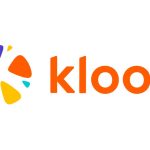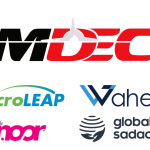By The Malketeer
In the wake of the global pandemic, businesses have been forced to adapt rapidly to new challenges, from shifting consumer behaviours to the accelerated digital transformation of industries.
Amidst this upheaval, the role of the Chief Marketing Officer (CMO) has undergone a profound transformation, giving rise to the emergence of the Fractional CMO – a trend that is not only gaining traction but reshaping the very fabric of marketing leadership.
Traditionally, the CMO has been viewed as the linchpin of a company’s marketing strategy, responsible for overseeing all aspects of brand development, customer engagement, and revenue generation.
Traditional CMO Model is Obsolete
However, the ever-expanding scope of marketing, coupled with the increasing complexity of the digital landscape, has rendered the traditional CMO model increasingly obsolete.
Today’s marketers must possess a diverse skill set that encompasses not only traditional marketing disciplines but also super proficiency in digital technologies, data analytics, and emerging trends such as influencer marketing and social media advertising.
Tangible Advantages of the Fractional CMO
Enter the Fractional CMO – a seasoned marketing executive who offers their expertise and leadership on a part-time or project basis. Unlike full-time CMOs, who are often bogged down by administrative tasks and internal politics, Fractional CMOs can focus exclusively on driving results for their clients.
This laser-focused approach allows them to deliver tangible value in a fraction of the time, making them an attractive option for companies looking to accelerate their marketing efforts without the burden of a long-term commitment.
One of the key advantages of the Fractional CMO model is its flexibility. In today’s fast-paced business environment, companies need to be agile and responsive to changing market dynamics.
Staying Nimble in the Face of Uncertainty
By engaging a Fractional CMO, Malaysian companies can tap into top-tier marketing talent as needed, scaling their marketing efforts up or down based on demand and budget constraints. This not only allows companies to stay nimble in the face of uncertainty but also enables them to access specialised expertise that may be lacking in-house.
Moreover, the Fractional CMO brings a fresh perspective to the table. Unlike full-time CMOs, who may become entrenched in the day-to-day operations of a single company, Fractional CMOs can work with multiple clients across various industries.
This exposure not only keeps their skills sharp but also allows them to bring innovative ideas and best practices from one company to another, driving greater results for all parties involved.
Critics of the Fractional CMO model may argue that it lacks the same level of commitment and dedication as a full-time CMO role. However, this couldn’t be further from the truth.
Driven by a Culture of Accountability
Fractional CMOs are highly motivated professionals who are committed to delivering tangible results for their clients. They understand that their reputation and future opportunities depend on their ability to drive meaningful impact, and they approach each project with the same level of dedication and enthusiasm as they would in a full-time role.
Furthermore, the Fractional CMO model fosters a culture of accountability and transparency. Since Fractional CMOs are typically hired on a project basis, they are acutely aware of the need to demonstrate their value and justify their fees.
This results in greater accountability and a stronger focus on delivering measurable results, ultimately benefiting the companies they work with.
The Fractional CMO is not just a trendy new title. It’s a strategic solution to the evolving needs of modern businesses. By providing companies with access to top-tier marketing talent on a flexible basis, the Fractional CMO model enables organisations to stay agile, innovative, and competitive in today’s fast-paced digital world.
As the marketing landscape continues to evolve, the Fractional CMO is poised to become an integral part of the marketing leadership structure, driving greater success for Malaysian companies of all sizes and industries.
MARKETING Magazine is not responsible for the content of external sites.
After 20 years of evolving technology, shifting market trends, and adapting to changing consumer behaviour, the media landscape has nearly reached saturation.
We’ve optimised to the fullest, providing advertisers with abundant choices across technology, platforms, data-driven marketing, CTV, OTT, DOOH, influencer marketing, retail, etc.
Media specialists have diversified, but with more options comes the challenge of maintaining income growth. The industry is expanding, but revenue isn’t keeping pace.
Now, we’re at a TURNING POINT: time to explore and harness new sustainable revenue streams. While GroupM forecasts a 7.8% global ad revenue growth in 2024, challenges like antitrust regulation, AI and copyright issues, and platform bans persist.
Collaboration is key: partnerships that thrive on synergy, shared values, and aligned goals are becoming increasingly essential.
Hence, the Malaysian Media Conference, in its 20th year, has assembled the partners and players under one roof on October 25 for a day of learning, sharing, and exploring.
REGISTER NOW










